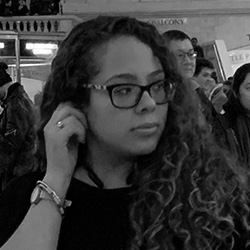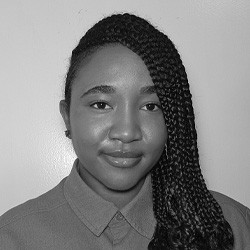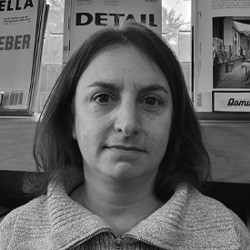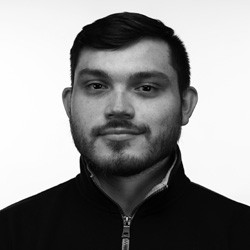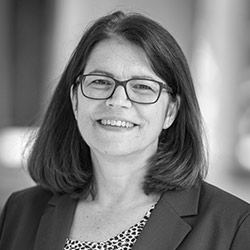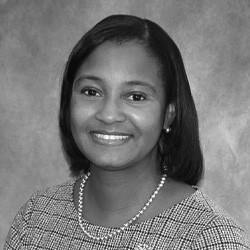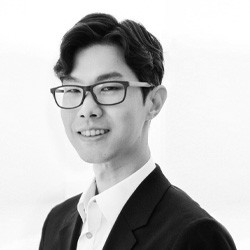A Student of Life
Melissa Mazo trained as a machinist at Platt Technical High School in Milford, Conn. “As a machinist,” she says, “you learn how to manufacture products with various tolerances by interpreting blueprints that mechanical engineers create and design.” Knowing how to make a product fascinated Mazo and inspired her to learn how to design the product.
After working in the manufacturing industry, she decided to pursue a degree in mechanical engineering, and in 2014 enrolled in New York Tech. By her sophomore year, Mazo had become a resident assistant with the Office of Residence Life and Off Campus Housing. She had also become active in campus clubs. She became most involved with the National Society of Black Engineers (NSBE), a group she served for three semesters as vice president.
During that same time, however, her circumstances changed. “I had entered into the mechanical engineering major as a full-time student,” she says, “but I had to take a step back from attending university for a short period. My degree is taking me longer than a typical four-year degree path, but it doesn’t bother me. I’ve learned that you need to just work with life, no matter what it throws at you.”
Mazo is not one to let obstacles deter her from her goals. A STEM-focused Colombian-American woman, she often finds herself being the only woman of color in the room. “It’s actually a silent challenge that I have faced and will continue to face throughout my career,” she says. “Although being one of the only women of color in a room is inevitable in my career of choice, it always challenges me to continuously break the stereotype of what an engineer looks like.”
New York Tech’s mechanical engineering program provides the educational resources necessary for her to reach her career goals, she says. And for motivation and purpose, Mazo relies on her connections in NSBE. Citing NSBE’s motto, Mazo says the society has “reinforced the need for me to ‘excel academically, succeed professionally, and positively impact the community.’”
One way Mazo supports the community is by participating in the College of Engineering and Computing Sciences’ “Introduce a Girl to Engineering Day.” On the first such day, Nassau County Girl Scouts joined students, faculty, and others to get a taste of a STEM career. “As a former Girl Scout, I remembered being in their shoes and looking at women within the STEM workforce and wondering why there was a lack of my representation. From the small percentage of women in engineering, as well as an even smaller percentage of Hispanic engineers, I felt proud to represent those categories in front of more than a hundred elementary and middle schoolers. I hope to inspire these young women into a continuing interest in STEM. And I never want them to fear being the only one in a room.”
While making progress toward her B.S. in mechanical engineering, Mazo works as a machinist at a company that makes flight safety jet engine parts for Fortune 500 aerospace companies. “My job reinforces what I learn during class. I take real life examples that I create with my own hands and get continuous ‘aha’ moments in the classroom,” she says.
Mazo’s current work manufacturing jet engine parts isn’t very far from her biggest professional ambition: to develop technology that will advance society by advancing space travel. “Space means endless learning and progressing humanity,” she says. She would also love to help create “effective and hyper-responsive bio prosthetics” for the medical industry.
As a Hispanic woman in a STEM field, she is especially grateful for New York Tech’s diversity. “From getting to know students who come to New York Tech from around the world to learning from professors who come from different backgrounds and concentrations, networking with people outside of your ordinary circle is an important way to learn,” she says.
And this kind of learning, she says, is critical to success in a challenging academic program like engineering. She recommends that aspiring engineers join an engineering society or club. “Being surrounded by your immediate peers within class is a great way to learn the material,” she acknowledges, “but networking with your classmates outside of a scheduled time reinforces the way you learn and think.”
“Part of a valuable education doesn’t come from books, but rather from the experiences of life,” says Mazo. “Recognize that you are a student of life, and you will never stop learning.”
